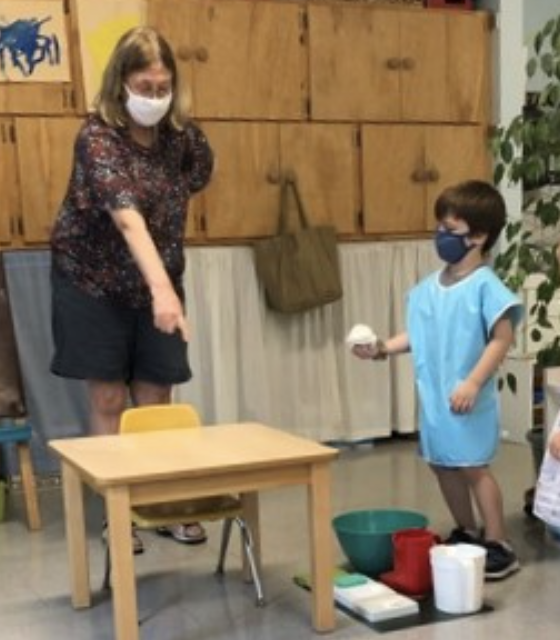by Directress Cindy Genin
A typical misconception of a Montessori School is that, “it is one of those schools where the children are able to do whatever they want at any time.” People imagine chaos in a room where children are not regimented. A good rebuttal to this false idea comes from Dr. Montessori herself:
One might then ask, “What exactly is ‘freedom’ in the Montessori classroom?” The answer lies within the role of the directress, who prepares the environment – sets out specific lesson materials – for each child. When the environment is properly prepared, the child is set up for success. He is given the opportunity to take an initiative towards independence. This liberty is guided by the directress, who gifts this freedom to her students through lessons.
Freedom though, does not come without limitations. When freedom is taught as the ability to do whatever you want at any time, a lack of self-discipline and purpose will more than likely be the end result. This is why freedom within limits is of great importance. In a Montessori classroom, as long as the lesson has been presented and the work is used respectfully, the child is free to choose that work. The only limitation is the child’s readiness and their actions towards the work. This is known as purposeful activity, which is the fundamental practice of grace and courtesy that is constantly being modeled by the directress and practiced by all.
The only limitation is the child’s readiness and their actions towards the work.
Take a moment to look at freedom within limits and purposeful activity through the eyes of a child. So often a child is told, “No.” “No, you may not touch this.” “No, this is not for you.” However, when the child is given the freedom to choose, the message is: I am free…
- to choose from the lessons I have been given
- to work at my own pace
- to repeatedly practice a work until I achieve self-mastery
- to strengthen my skills
- to build confidence, patience, concentration, and control
- to use the works respectfully as presented
How can one then say that Montessori children lack discipline, the ability to concentrate, and ultimately the ability to function in society? If only one took the time to learn about Maria’s ideology, they would see how thoroughly she understood children. Through her observations of children over many decades, she developed what we now know as the Montessori Method, and now you might understand that her goal was to –
“Free the child’s potential and you will transform him into the world.”

